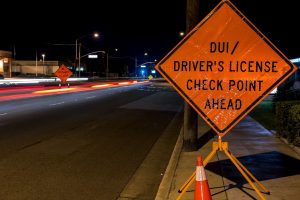Tips about Going through an Arizona DUI Checkpoint
Before you go through a DUI checkpoint, you should be aware of your responsibilities and rights. This is especially true if you are in the state of Arizona, because they take DUI cases very seriously.
Are DUI Checkpoints Legal and Constitutional?

Yes, they are. They let police officers lawfully stop drivers even if they do not seem suspicious. This is to prevent the occurrence of accidents or other negative consequences of DUI’s.
DUI checkpoints are different from routine stops. With a routine stop, the police officer needs to have reasonable doubt that a violation has been committed. With a DUI checkpoint, such reasonable doubt is not required. This can make it truly intimidating.
Unfortunately, a lot of people are not aware of their rights. So, when they get stopped at a DUI checkpoint, they panic and get confused. To help you avoid getting in trouble, you need to know and protect your rights without incriminating yourself. Here are some helpful tips:
Know your constitutional rights.
If you get stopped at a DUI checkpoint, you will be asked to show your documents. You will be asked to show your ID and driver’s license. You will also be asked certain questions. Make sure that you present these things and be honest with your answers.
Know your right to remain silent. You should not feel obliged to answer unnecessary questions, such as where you are heading to or where you have been.
Do not provide more information than you have to. Otherwise, you may end up incriminating yourself. Call your lawyer as soon as possible. Only speak if your lawyer tells you that it is okay to do so.
Comply with the police officers.
In addition, you may be asked to step out of your vehicle. Just comply without complaining or displaying any aggressive behavior. Otherwise, you could be brought up on charges.
Always be polite and civil. Refrain from even seeming to assault the police officer. Getting stopped at a checkpoint can be a real hassle. It can put you in a foul mood, but you should always stay calm and reasonable. Speak calmly and carefully. Do not physically attack or curse at the police officer.
Use your common sense.
Yes, there are times when you are not required to do what a police officer tells you. For example, if a police officer stops you at a DUI checkpoint and says that he wants to conduct a search of your vehicle, you can refuse. You do not have to agree to this search. However, it may be a better idea to agree than to disagree, especially if you aren’t hiding anything. Just cooperate with the authorities so that the process can be over as soon as possible.
Likewise, you are not obliged by the law to take a sobriety or blood alcohol content test. If a police officer stops you at a DUI checkpoint and asks you to perform a Breathalyzer test, you have the right to refuse. Then again, refusing to take such tests may also result in legal repercussions. For instance, your driver’s license could be suspended. It is best to contact your lawyer before you make a decision on whether to take or refuse any chemical test.
The Law Offices of Gary L. Rohlwing provides DUI, criminal defense, and domestic violence representation in Arizona. So, if you ever get charged with a DUI, you can give him a call.







